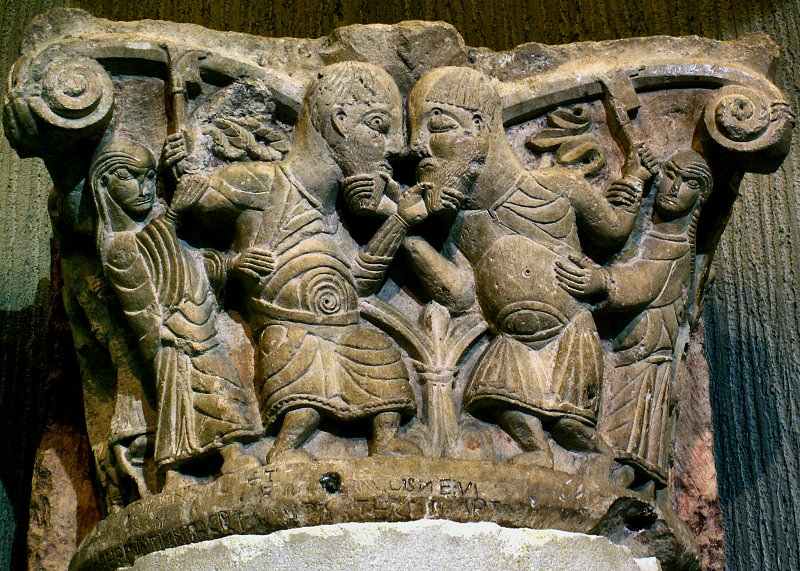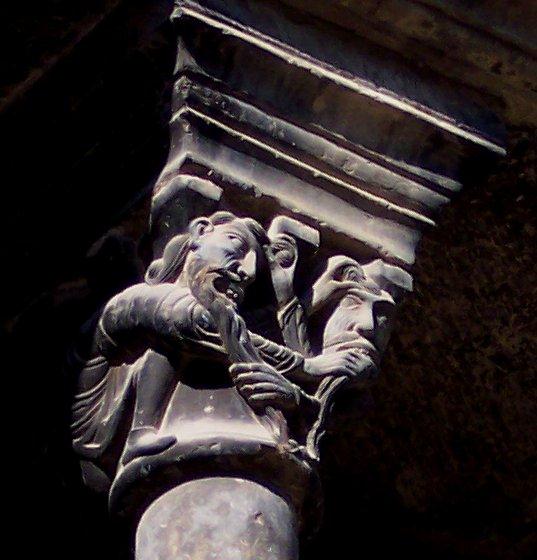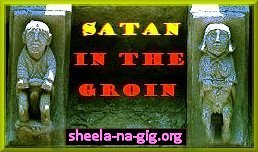Poitiers (Vienne)
A splendid capital in the museum depicting mutual beard-pullers brandishing
axes or cleavers probably represents Strife (vengeance, etc.).
On either side are robed females who half-heartedly seek to restrain them.
Less realistic but perhaps even more ornamental are the beard-pulling
heads on an apse-capital of the cathedral at Brive (Corrèze).
Forked beards represent Copts, Irish and Cathars, considered
heretics by the Western Catholic church,
thertefore figures of strife - even though the strife was always
initiated by the Catholic church.
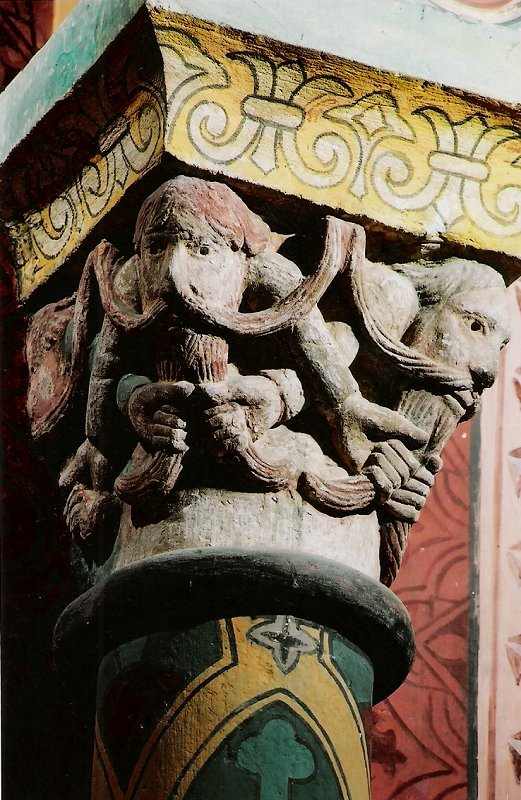
More fanciful still is the bicorporeal
heretic beard-puller at Sant Joan de les Abadesses (Girona).
The elephants symbolise Africa, domain of 'heretic sects' in Egypt
and Ethiopia.
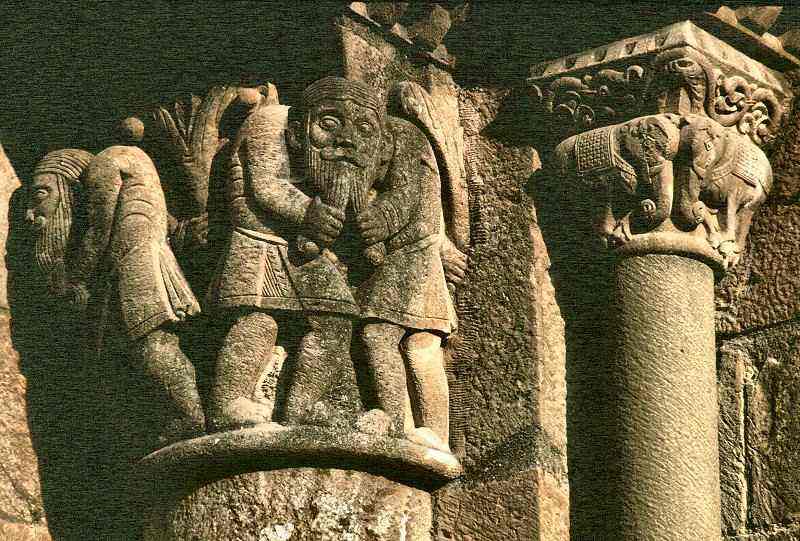
Anzy-le-Duc (Saône-et-Loire):
capital with beard-pullers and a tongue-sticking beast.
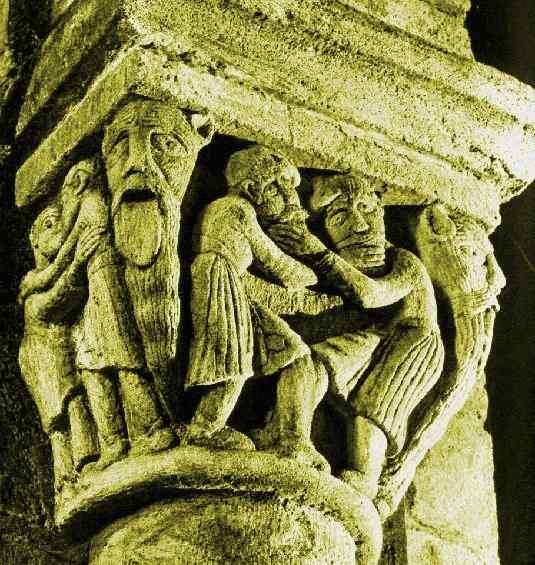
Brioude (Haute-Loire):
capital with beard-puller ?monks and ?monks blowing oliphants
or trumpets of doom to announce the presence of evil.
click for 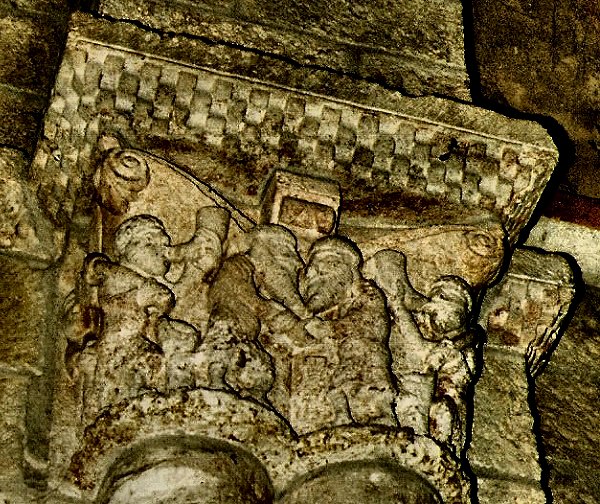 more
more
photo by Julianna
Lees
Saint-Antonin-Noble-Val
(Tarn-et-Garonne) - Maison des Consuls (which housed a court of justice):
ferocious mutual beard-pullers on a capital.
The best of all: from the ruined Abbey of
La Sauve-Majeure (Gironde), and now in the Cloisters,
Metropolitan Museum of Art, New York, a sculptural masterpiece perhaps hinting
at sodomy.
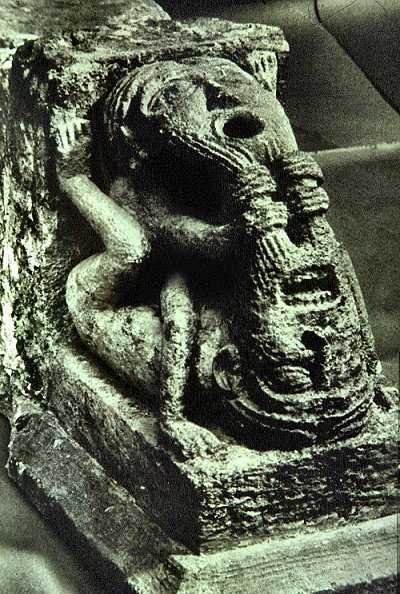
Beard-pulling centaurs at Charlieu (Rhône-Alpes)
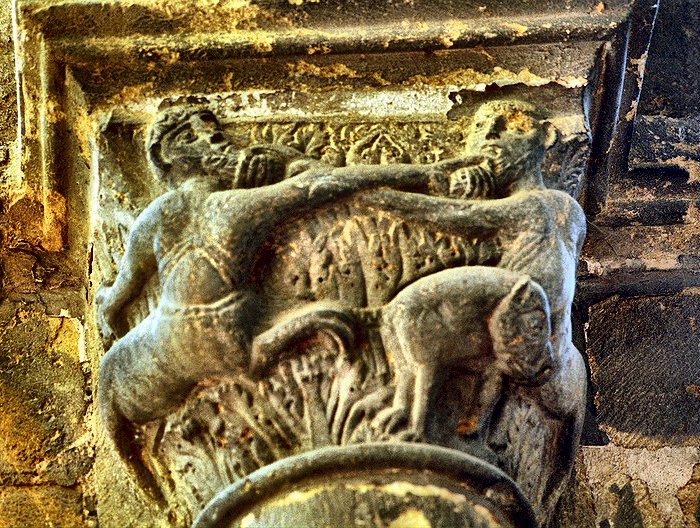
Click for a page of beard-pullers, divided into two groups >
